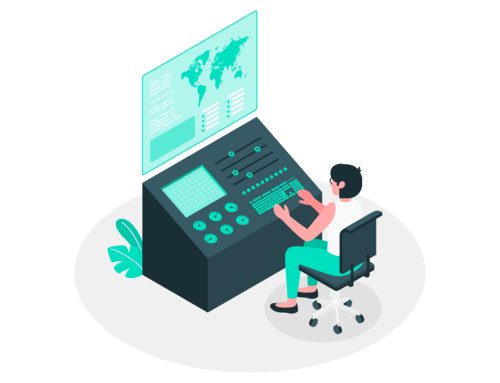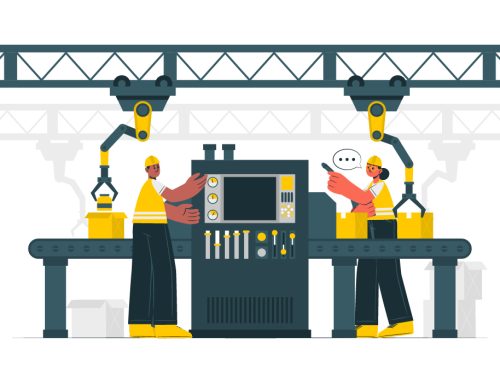Healthcare technology is advancing quickly, but having the latest equipment is only half the battle. It’s the support behind the scenes—service and expertise that keep things running—that makes the difference.
Author Nick Saraev

Photo: Freepik
Philips, a leader in health tech, knows this well and has shifted its focus to offer advanced, proactive services beyond just repairs. They’re showing that by driving demand for advanced services, healthcare providers can get better results, maximise investments, and ultimately improve patient care.
Here’s why this matters and how Philips is making it happen.
Moving Beyond “Break-Fix” to Full Lifecycle Support
Traditionally, equipment service was simple. Something would break, a tech would get called in, and they’d fix it. But Philips realised that healthcare providers need more than just a quick fix here and there—they need ongoing support to keep equipment running at its best all the time.s
This is where Philips’ full lifecycle support comes in. Instead of just showing up when something’s broken, Philips provides continuous monitoring, planned upgrades, and constant care. It’s about building a relationship, not just selling a service contract.
With this kind of partnership, hospitals can cut down on surprise repairs, get more out of their equipment, and keep everything running as smoothly as possible.
Simplifying Services with a Universal Portfolio
Philips also realised their service offerings across different tech areas—like ultrasound, MRI, and cardiology—were confusing. Each department had its own approach, so customers often found it hard to navigate their options.
Philips streamlined all these services into a single universal portfolio, so healthcare providers have one clear set of choices no matter what equipment they’re using.
Putting People at the Heart of Service
One thing that sets Philips apart is the field service engineers and remote experts behind their services. These teams ensure critical equipment stays up and running, and their experience and skill level are a big reason Philips consistently scores high in customer satisfaction.
To support these experts, Philips combines their skills with advanced data tools. Operational dashboards let service teams spot trends, fix recurring issues, and keep systems in top shape.
For example, Philips once helped a hospital identify why one CT scanner was underperforming compared to another. The culprit? A training gap that, once closed, boosted efficiency significantly.
It’s this blend of people and technology that makes Philips’ service team such an asset to their clients.
Building Demand with Customer-Centric Marketing
Of course, a great service model only works if people know about it. Philips tackles this with a strategic marketing approach that aligns with different parts of the customer journey: awareness, consideration, and loyalty.
Through social media, events, and targeted content, Philips shares why its services matter and how they benefit healthcare providers.
Internally, Philips also puts a lot of focus on sales enablement and training. A big chunk of their marketing budget goes toward educating the sales team on service offerings so they can clearly communicate the value to customers.
Philips understands that everyone, from marketing to field engineers, plays a role in the overall customer experience, so they can make sure each team member is aligned with their goals.
Data-Driven Solutions for Better Decision-Making
Another way Philips is transforming healthcare support is through data-driven solutions. Rather than waiting for problems to crop up, Philips uses real-time data and analytics to catch potential issues early.
This proactive approach reduces downtime, cuts maintenance costs, and helps hospitals focus on patient care.
Their optimisation services include monitoring tools and dashboards that give hospitals a clear view of equipment performance. It helps healthcare providers pinpoint areas where they can improve efficiency or identify training needs.
For instance, one hospital discovered a CT scanner was underperforming because the operator wasn’t fully trained. Fixing these small but critical issues adds up, allowing hospitals to get the most out of their equipment.
Philips also offers flexible upgrade packages for software and technology updates, so hospitals can stay at the cutting edge without having to buy new equipment constantly. With these offerings, Philips gives healthcare providers a way to stay current without breaking the bank.
Flexible Contracts for Lasting Partnerships
Philips understands that every healthcare provider has different needs and budget constraints. That’s why they offer tailored service contracts that let customers choose the level of support they want.
Instead of pushing clients into one-size-fits-all plans, Philips offers a range of options so hospitals can select exactly what they need.
It’s a bit like health insurance. Rather than basic, mid, and premium plans, Philips offers customisable packages where clients pick the specific features they want.
This approach helps Philips build trust and long-term partnerships because hospitals know they’re getting what they need — and not paying for extras they don’t.
Why Building Demand for Advanced Services Matters
As healthcare technology continues to evolve, having dependable, proactive services has never been more important. Philips’ focus on advanced, customer-centred services is setting a new standard.
By combining full lifecycle support with data-driven insights and a team of dedicated experts, Philips makes sure healthcare providers get the most out of their technology.
Through strategic marketing, customer education, and a commitment to quality, Philips is helping healthcare providers make informed choices and build partnerships they can count on.
It’s all about creating lasting value in a world where healthcare technology plays an ever-growing role.






























